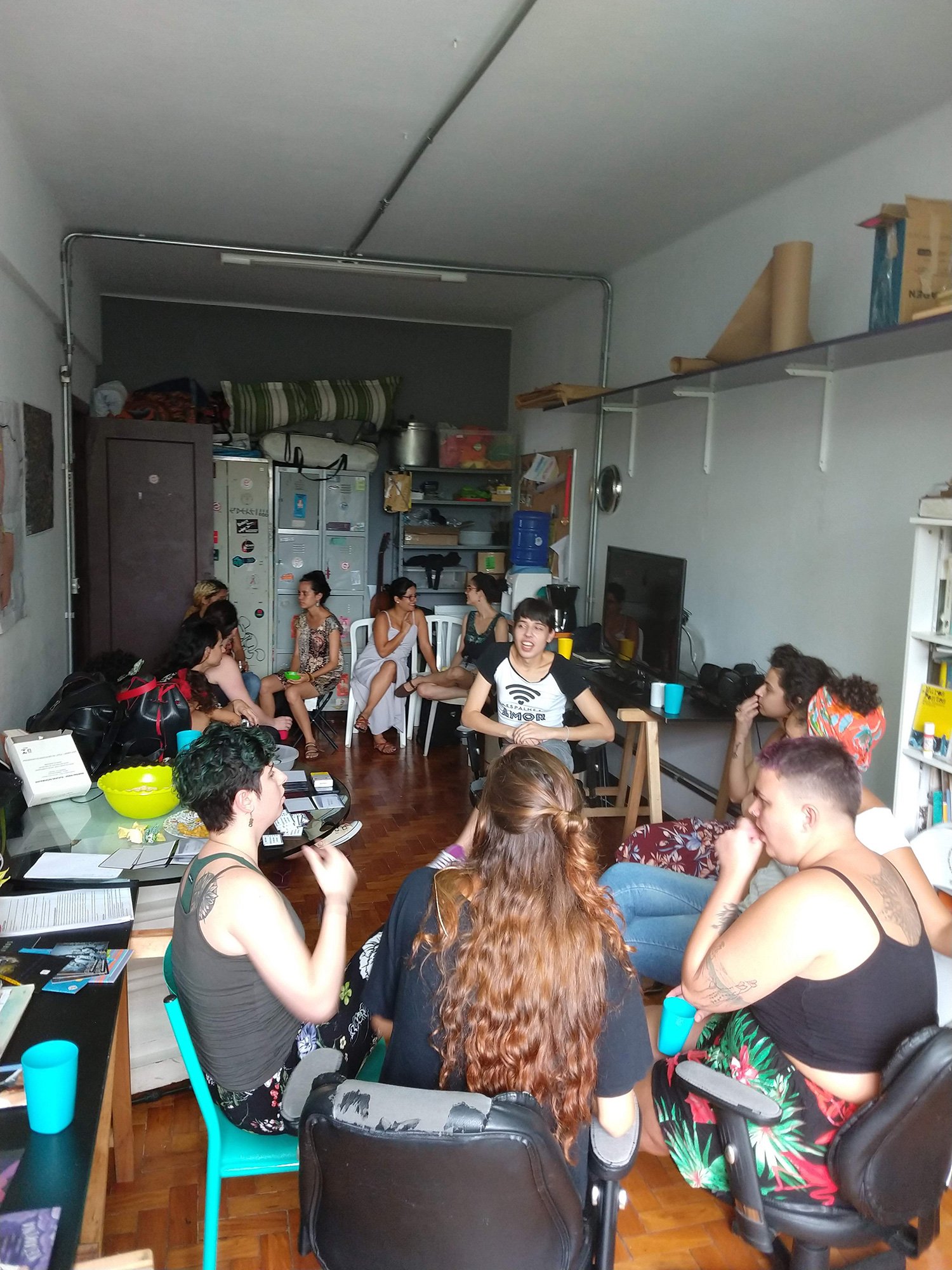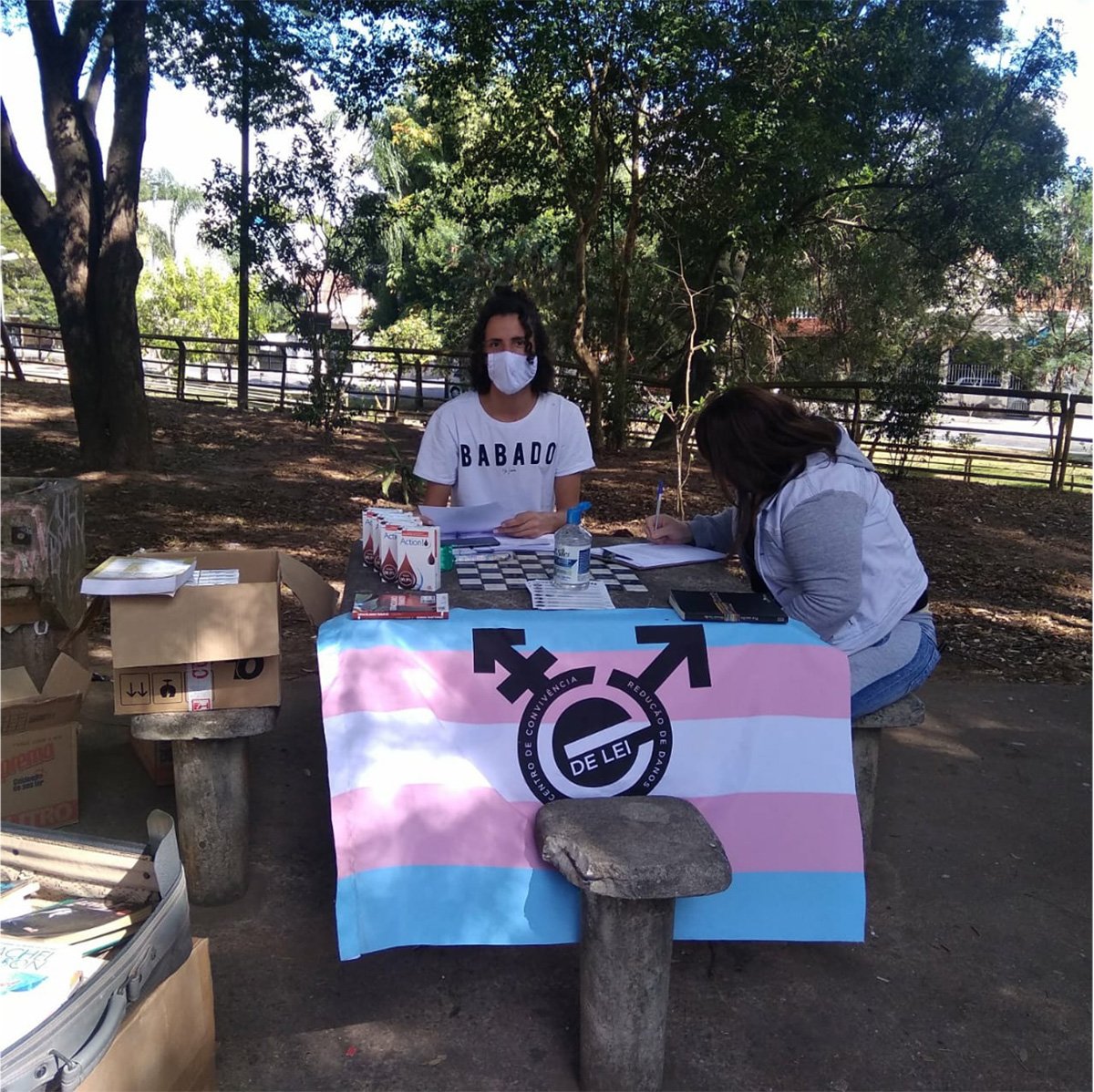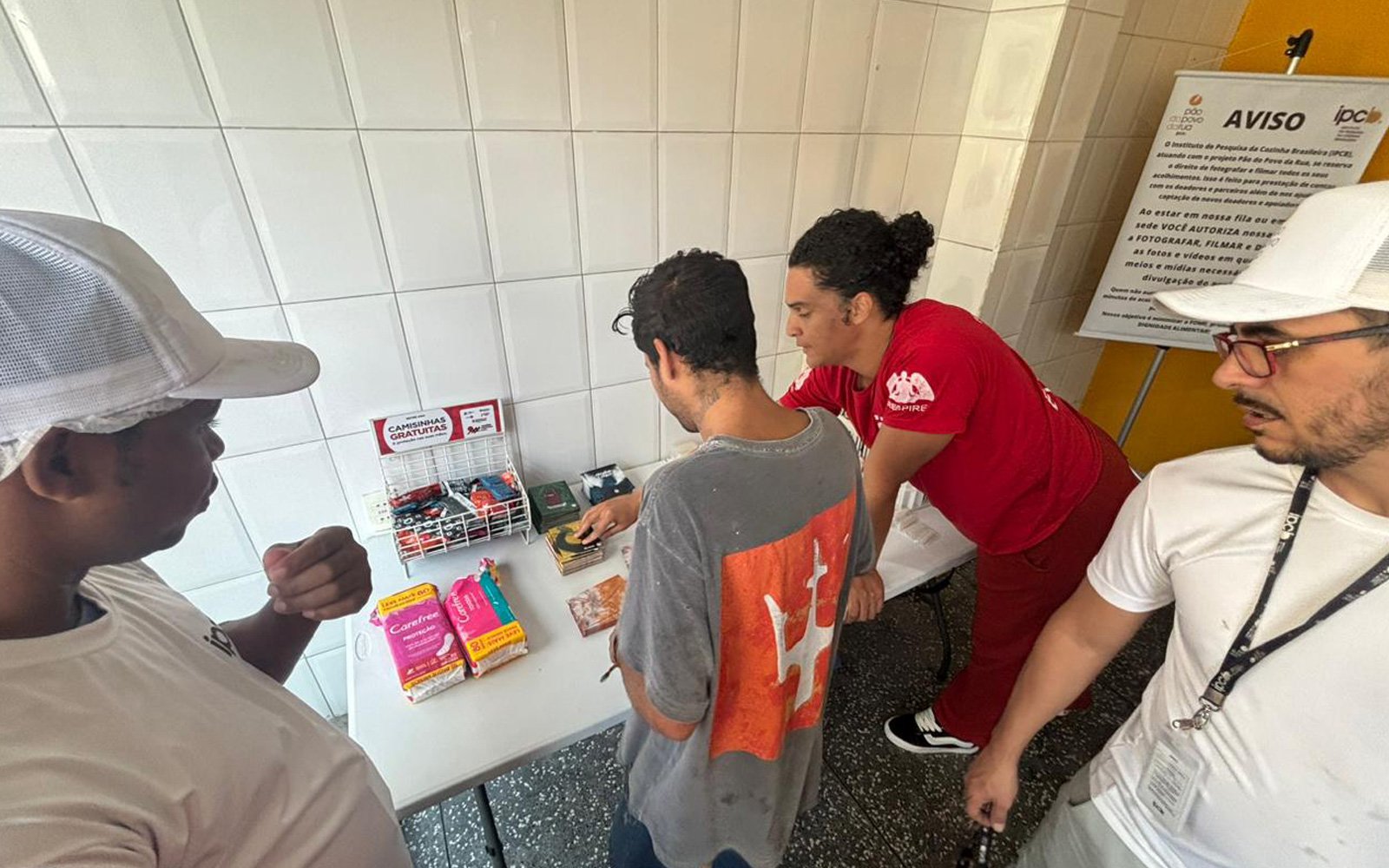Could you tell us about É de Lei and your work?
My name is Ana Luiza, and I am a journalist and harm reduction worker. I currently work at the É de Lei Drop-in Centre, a non-profit civil society organisation that has been active since 1998, providing harm reduction services for people impacted by Brazil’s drug policy. É de Lei’s mission is to promote an ethical approach to care in the field of drug use, expanding individuals’ choices while deconstructing prejudices. The centre also encourages a culture that guarantees rights and embraces gender diversity. It aims to co-create and spread care references and community based harm reduction practices by working with people who use drugs, professionals within the intersectoral network, academics, and public management, aiming at a political impact that transforms the logic of “war on people”.
What are the challenges you experience in providing gender responsive services for women and gender diverse people who use drugs?
Over the years, it became evident that the majority of people seeking services from É de Lei Drop-in Centre were cisgender men. However, the absence of cis and trans women, trans men, and non-binary people in the centre did not mean that these groups do not use drugs, or, even less, that they are not immune to the prevailing systemic issues.

É de Lei observes that these individuals’ lack of access to care spaces – particularly health, social assistance and criminal justice public services – is due to the stigma and discrimination they face daily- particularly in public care spaces. Some of the violations identified include disrespect for their social name, psychological and physical violence in these spaces, and denial of assistance. É de Lei runs support sessions led by and for gender diverse people who use drugs
Can you tell us about the profile of the people that access your services and their needs?
According to the 2019 Census of the Homeless Population in São Paulo, nearly 15% of individuals in this
situation are women, and almost half of the entire population identifies as black. 95.8% identify as cisgender, though the report does not distinguish between cis women and cis men, and 0.5% identify as trans men.

The Census also highlights issues related to menstrual poverty, with some respondents reporting using cloth or paper when they could not afford menstrual products. In response to these findings, É de Lei has created a safe space where cisgender women, trans women, trans, non-binary individuals and trans men can share their experiences in a setting that is more sensitive to gender-specific concerns.
How do you ensure your organisation provides services that resonate with the community?
É de Lei works through peer-based strategies, prioritising the creation of bonds – a key characteristic of harm reduction work. A strategy for creating this bond is through the distribution harm reduction resources used by harm reduction workers in the field. Some examples of resources historically used by É de Lei include silicone “piteiras” (pipe holders), lip balms, internal and external condoms, lubricants, folders with information on the most common substances, rolling paper, water, and more.
The presence of cis women, trans, non-binary individuals, and trans men in É de Lei’s team has allowed us to listen to their needs, create new resources, and develop strategies for ensuring that care is provided to this population while also fighting for greater autonomy and rights. Sometimes, only listening and being there is the most needed thing.
What sexual and reproductive health services do you give women and gender diverse who use drugs attending E de Lei?
É de Lei has co-developed resources that address the unique needs of this community, such as:
- Panty Kits: including panties for cis women and special underwear for trans women.
- Pad Kits: providing both internal and external pads for those who menstruate.
- Information Materials: covering menstruation, HIV and STI prevention, harm reduction strategies related to sex work, information about contraceptive methods available in Brazil’s public healthcare system.
It is crucial to emphasise that while these resources meet immediate needs and ensure hygiene—thereby guaranteeing minimal access to healthcare—they should not be seen as items that reduce individuals to their underwear or menstruation. These are people who have long resisted the system, built networks of support, and developed their own strategies for surviving with dignity.
What advice can you give others wanting to replicate your service approach?
Listening attentively is essential for the effectiveness of the harm reduction work. In harm reduction, É de Lei focus on defending the right to autonomy, choice, political organisation, and basic rights such as housing, food, education, and freedom. Once these rights are guaranteed, access to basic hygiene products will no longer be an issue.
- At this link is possible to access more information (in English) about É de Lei Drop-in Centre.
- É de Lei are also on Instagram, Facebook and Youtube.
- Here are some pictures of our work.


